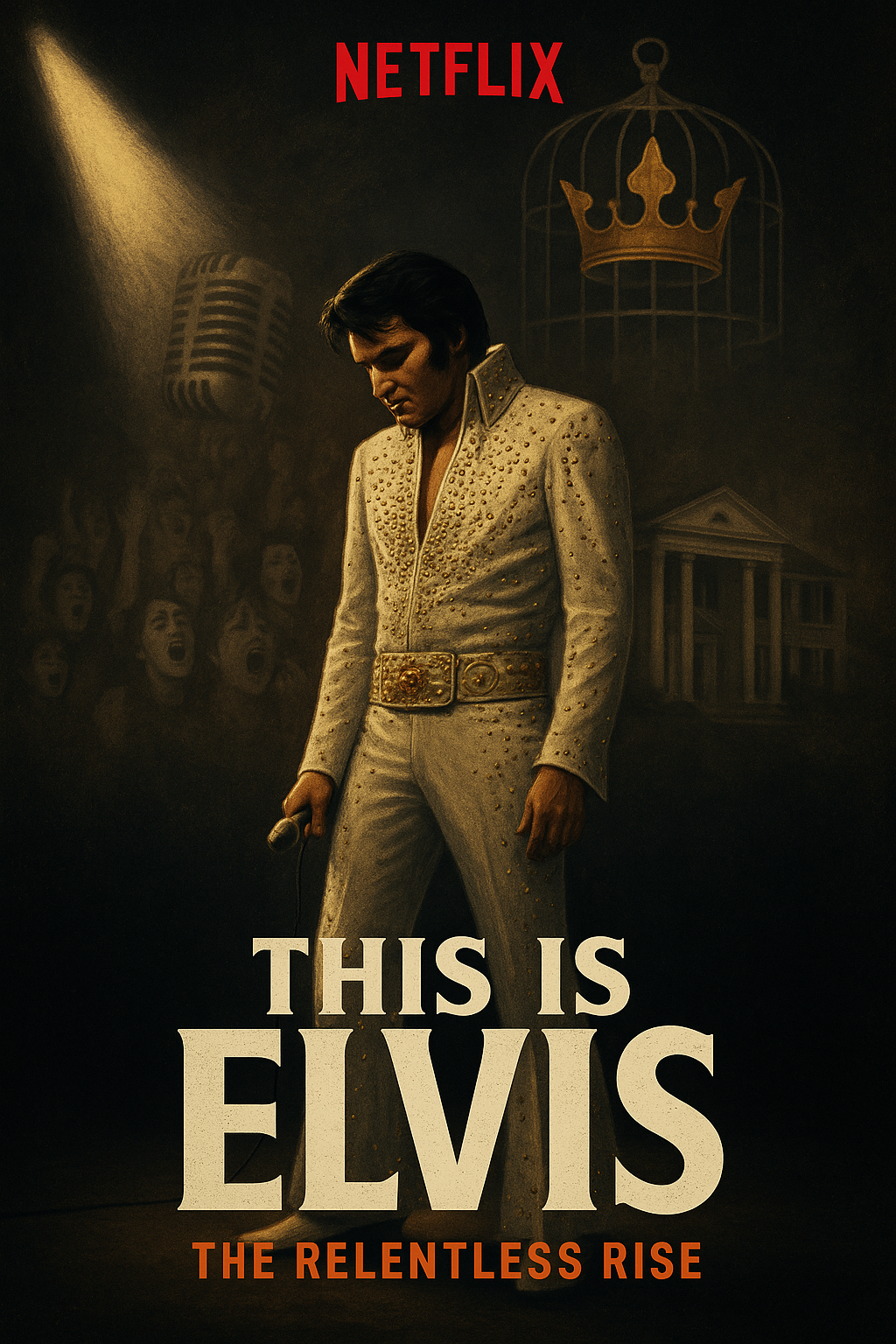Netflix’s latest biopic, THIS IS ELVIS: The Relentless Rise, is a haunting and heartfelt chronicle of a man whose name became bigger than life—but whose soul was quietly drowning beneath the weight of it. More than just a recap of glitter and music, this documentary reveals the complicated truth behind the legend of Elvis Presley, exposing a deeply personal portrait of the King of Rock ‘n’ Roll like we’ve never seen before.
From humble beginnings in Tupelo, Mississippi, to the flashing lights of Las Vegas, Elvis Presley’s story has often been told through the lens of fame. But this time, the lens zooms in on the man behind the myth. Through rare archival footage, newly uncovered interviews, and gripping voiceovers, THIS IS ELVIS charts not only the milestones of his career—but also the isolation, manipulation, and emotional price that came with it.
What makes this biopic stand out is its unflinching exploration of Presley’s psychological imprisonment. As much as he was crowned by the world, he was caged by those closest to him—managers, promoters, and even family—who prioritized the brand over the man. The documentary shines a light on Colonel Tom Parker’s iron grip over Elvis’ choices, leading to an agonizing battle between artistic freedom and financial dependency.
The film also explores the cultural contradictions Elvis embodied. A white Southern boy who revolutionized Black-inspired music, a heartthrob who longed for deep spiritual peace, and a rebel who was ultimately molded into a commercial machine—these identities never comfortably fit together. Netflix weaves these tensions throughout the documentary, giving viewers a nuanced understanding of Presley’s internal war.
THIS IS ELVIS doesn’t shy away from the darkest corners of his life. It addresses the pills, the paranoia, the loneliness of Graceland, and the emotional wreckage left by the very people who claimed to love him most. Yet it never becomes a tabloid exposé. Instead, it offers empathy, context, and a profound sense of loss for what Elvis might have been had he been allowed to live as freely as he sang.
Music, of course, plays a central role in the film. The documentary reintroduces audiences to the raw energy of his early Sun Records days, the electrifying Ed Sullivan performances, and the spiritual ache embedded in later hits like “If I Can Dream” and “Unchained Melody.” Each track is used with deliberate emotional precision, underscoring not just his greatness—but his growing desperation.
One of the most powerful aspects of the biopic is its use of Elvis’ own words. Through vintage recordings and journal entries, his voice echoes across time, giving viewers intimate access to his fears, dreams, and moments of clarity. These personal reflections stand in stark contrast to the carefully polished public image that surrounded him for decades.
Fans and newcomers alike will walk away from THIS IS ELVIS with a deeper understanding of Presley’s legacy. Not just as a performer or an icon, but as a man crushed beneath the very throne he was given. It’s a sobering reminder that fame, when built on exploitation, can be more of a prison than a privilege.
The documentary also raises bigger questions about how we treat our stars. What do we demand of those we put on pedestals? How much of their humanity are we willing to overlook in the name of entertainment? Elvis’ story is a cautionary tale—one that resonates even more deeply in today’s age of relentless celebrity scrutiny.
Directed with restraint and reverence, THIS IS ELVIS avoids romanticizing its subject while still honoring his unmatched impact on culture. It’s a tightrope walk few filmmakers manage, but here it’s done masterfully. The result is a film that feels both cinematic and intimate, tragic yet triumphant.
Ultimately, Netflix’s THIS IS ELVIS reminds us that greatness often comes at a devastating cost. It invites us to revisit Presley’s life not just through the lens of what he gave us—but through the lens of what was taken from him. Crowned as the King, Elvis was adored by millions. But inside, he remained a prisoner of his own empire.
In the final moments of the film, as one of his later performances plays against grainy concert footage, the camera lingers just long enough to catch something deeply human: a look in his eyes that seems to ask, “Was it worth it?” That question echoes long after the credits roll.


